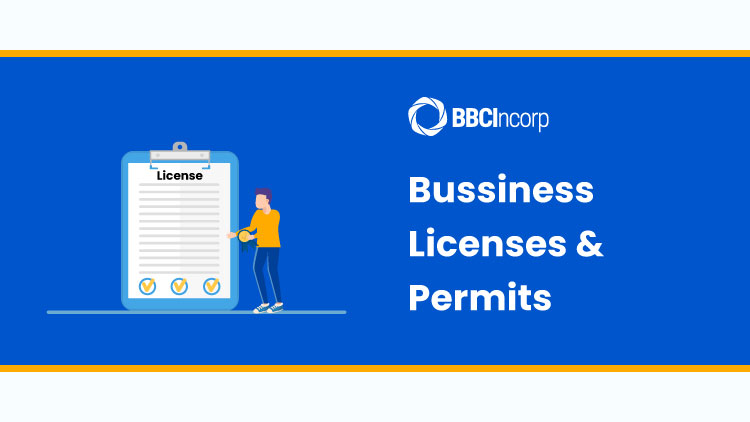
Navigating Business Licenses and Permits: Your State-by-State Guide to Compliance
Starting a new business is an exciting journey filled with innovative ideas, strategic planning, and the thrill of bringing your vision to life. But amidst the excitement, there’s a crucial, often overlooked, step that can make or break your venture: understanding and obtaining the correct business licenses and permits.
Many aspiring entrepreneurs assume one or two basic licenses will suffice, only to discover a complex web of regulations at the federal, state, and local levels. Ignoring these requirements isn’t just a minor oversight; it can lead to hefty fines, legal complications, forced business closure, and a damaged reputation.
This comprehensive guide will demystify the world of business licenses and permits, offering a clear, state-by-state approach to help you navigate the legal landscape with confidence. Whether you’re launching an online store, opening a brick-and-mortar shop, or offering services from home, we’ll equip you with the knowledge to stay compliant and build a strong, legitimate foundation for your business.
Why Business Licenses and Permits Matter: Beyond Just Legalities
Think of licenses and permits as your business’s passport and visa. They prove you’re operating legally, safely, and professionally. Here’s why they’re non-negotiable:
- Legal Compliance: The most obvious reason. Operating without required licenses can lead to severe penalties, including fines, injunctions, and even criminal charges in some cases.
- Credibility and Trust: Having the proper permits signals to customers, partners, and investors that you’re a legitimate and responsible business. It builds trust and enhances your reputation.
- Consumer Protection: Many licenses, especially those related to health, safety, and professional services, are designed to protect consumers from unsafe practices or unqualified providers.
- Access to Funding: Banks and lenders often require proof of proper licensing and registration before approving business loans or lines of credit.
- Personal Liability Protection: For certain business structures (like LLCs or Corporations), maintaining compliance, including proper licensing, is crucial to protect your personal assets from business liabilities.
- Public Safety: Permits related to building, fire, and environmental regulations ensure your business operates in a way that doesn’t harm the community or the environment.
The Three Tiers of Regulation: Federal, State, and Local
Understanding where to look for licenses and permits begins with recognizing the three main levels of government that issue them:
1. Federal Licenses and Permits
While not every business needs a federal license, specific industries are heavily regulated by federal agencies due to their nature, potential impact, or the goods/services they provide.
Common Federal Requirements & Examples:
- Employer Identification Number (EIN): Issued by the IRS, this is like a Social Security number for your business. Most businesses that hire employees or operate as a corporation, partnership, or LLC will need an EIN, even if they don’t have employees.
- Specific Industry Licenses:
- Agriculture: If you deal with certain plants, livestock, or pesticides (USDA).
- Alcohol: For manufacturing, wholesale, or retail sales of alcoholic beverages (Alcohol and Tobacco Tax and Trade Bureau – TTB).
- Aviation: For air transportation, aircraft operation, or maintenance (Federal Aviation Administration – FAA).
- Firearms, Ammunition, Explosives: Manufacturing, importing, or selling these (Bureau of Alcohol, Tobacco, Firearms and Explosives – ATF).
- Fisheries and Wildlife: Commercial fishing, importing/exporting wildlife (U.S. Fish and Wildlife Service).
- Broadcasting/Radio: Operating a radio or TV station (Federal Communications Commission – FCC).
- Transportation: Interstate trucking, shipping, or logistics (Department of Transportation – DOT).
- Mining and Drilling: Operating mines or engaging in drilling activities (Mine Safety and Health Administration – MSHA).
How to Check for Federal Requirements:
The U.S. Small Business Administration (SBA) website (SBA.gov) is an excellent starting point. They offer resources and links to federal agencies that issue licenses.
2. State Licenses and Permits
Every state has its own set of rules for businesses operating within its borders. These often relate to your business structure, industry, and how you collect taxes.
Common State Requirements & Examples:
- Business Registration (Entity Formation): If you’re forming an LLC, Corporation, or Partnership, you’ll typically register your business name and structure with your state’s Secretary of State or equivalent agency. Sole proprietorships and general partnerships usually don’t need this, but might register a "Doing Business As" (DBA) name.
- Sales Tax Permit (Seller’s Permit/Resale Certificate): If you sell tangible goods or certain services, you’ll need this from your state’s Department of Revenue (or similar tax authority) to collect and remit sales tax.
- Employer Withholding Tax Account: If you have employees, you’ll need to register with your state’s tax agency for state income tax withholding.
- Unemployment Insurance Account: For states that require contributions to state unemployment insurance funds.
- Professional/Occupational Licenses: Many professions require state-issued licenses to practice. This includes:
- Doctors, nurses, dentists
- Lawyers
- Accountants (CPAs)
- Contractors, electricians, plumbers
- Real estate agents, brokers
- Cosmetologists, barbers
- Childcare providers
- Therapists, counselors
- And many more! Each state has specific boards or departments for these.
- Environmental Permits: For businesses that impact air quality, water quality, or hazardous waste disposal (e.g., dry cleaners, manufacturing plants).
- Health Permits: For businesses involved in food preparation or handling (e.g., restaurants, food trucks).
- Specialty Licenses: Depending on your industry, you might need state licenses for things like lottery sales, liquor sales, auto dealerships, or pawn shops.
How to Check for State Requirements:
Start with your state’s official government website (usually ending in .gov). Look for sections dedicated to "Business," "Secretary of State," "Department of Revenue," or "Occupational Licensing."
3. Local Licenses and Permits (City and County)
This is where many businesses get tripped up, as local regulations can vary significantly even between neighboring towns. Don’t overlook this tier!
Common Local Requirements & Examples:
- General Business License (Business Operating Permit): Many cities and counties require a general license just to operate any business within their jurisdiction. This is often the most basic and fundamental local permit.
- Zoning and Land Use Permits: Crucial for brick-and-mortar businesses. These ensure your business type is allowed in your chosen location and that your building meets local land use plans. If you’re changing the use of a building (e.g., from residential to commercial), you’ll definitely need to check zoning.
- Building and Construction Permits: If you plan to renovate, build, or make structural changes to your business premises.
- Health Department Permits: For any business that handles food, beverages, or provides personal care services (restaurants, cafes, salons, daycare centers).
- Fire Department Permits: Ensuring your premises meet fire safety codes, especially for businesses with high occupancy or specific hazards.
- Signage Permits: For installing or changing business signs.
- Alarm Permits: For security alarm systems.
- Home Occupation Permits: If you operate a business from your home, your city or county may have specific rules and require a permit to ensure it doesn’t negatively impact the residential neighborhood.
- Special Event Permits: If you plan to host events, festivals, or temporary sales.
How to Check for Local Requirements:
Contact your city clerk’s office, county administration office, or local Chamber of Commerce. Many cities and counties now have dedicated "business" or "permitting" sections on their official websites.
Your State-by-State Approach: A Roadmap to Compliance
Instead of providing an exhaustive, unmanageable list for all 50 states (which would be outdated before it’s published!), we’ll give you the process for how to research and identify the specific licenses and permits required in your state and locality.
The Golden Rule: Always verify directly with the relevant government agencies. Do not rely solely on third-party websites or advice from friends.
Here’s a systematic approach for any state:
Step 1: Start with Your State’s Official Business Portal (If Available)
Many states have consolidated resources for new businesses on a single government website. This is often the best starting point.
- How to find it: Search "[Your State Name] business portal," "[Your State Name] starting a business," or "[Your State Name] business licenses."
- What to look for: Information on registering your business entity, state tax IDs, and links to various state departments.
Step 2: Research Your State’s Secretary of State or Equivalent Office
This is usually the first stop for formal business registration.
- What they handle: Registering your business name (LLC, Corporation, Partnership), filing your Articles of Organization/Incorporation, and sometimes "Doing Business As" (DBA) names.
- How to find it: Search "[Your State Name] Secretary of State business," or "[Your State Name] corporate filings."
Step 3: Investigate Your State’s Department of Revenue (or Taxation)
If you’ll be collecting sales tax or have employees, this department is crucial.
- What they handle: Sales tax permits, employer withholding tax accounts, and sometimes state-level EINs or tax IDs.
- How to find it: Search "[Your State Name] Department of Revenue," "[Your State Name] tax permits," or "[Your State Name] sales tax registration."
Step 4: Identify Relevant Professional or Occupational Licensing Boards
If your business involves a specialized skill or service, you likely need a professional license.
- What they handle: Licensing requirements for specific professions (e.g., Medical Board, Bar Association, Contractors Board, Cosmetology Board).
- How to find it: Search "[Your State Name] professional licenses," "[Your State Name] occupational licensing," or "[Your State Name] [Your Profession] license."
Step 5: Dive into Your Specific City and County Requirements
This is where the local nuances come into play.
- What they handle: General business licenses, zoning permits, health permits, fire permits, building permits, signage permits, and home occupation permits.
- How to find it:
- For your City: Search "[Your City Name] business licenses," "[Your City Name] permits," or "[Your City Name] planning department." Look for the City Clerk’s office, Business Licensing Department, or Planning Department.
- For your County: If you’re outside city limits or your county handles business licensing for unincorporated areas, search "[Your County Name] business licenses" or "[Your County Name] permits." Look for the County Clerk, County Administrator, or County Planning Department.
- Crucial Step: Once you find the relevant department, call them directly or visit their office. Explain your specific business type, location, and planned activities. They are the ultimate authority on local requirements.
Step 6: Consider Industry-Specific State Agencies
Beyond general business and professional licenses, some industries have dedicated state-level oversight.
- Examples: State Department of Agriculture (food processing), State Department of Health (nursing homes, hospitals), State Environmental Protection Agency (waste management, air emissions).
- How to find it: If your business is in a heavily regulated industry, search "[Your State Name] [Your Industry] regulations" or "[Your State Name] [Your Industry] permits."
Step-by-Step Navigation Guide: Your Personal Checklist
To make this process manageable, follow these steps:
-
Define Your Business Clearly:
- What exactly will your business do? (Products, services)
- What is your legal structure? (Sole Proprietorship, LLC, Corporation, Partnership)
- Where will you operate? (Physical address, home-based, online only)
- Will you have employees?
- What is your business name?
-
Start with Federal Requirements:
- Determine if you need an EIN from the IRS. (Most businesses do).
- Check SBA.gov’s federal license and permit section to see if your industry requires specific federal licenses.
-
Research State-Level Requirements:
- Visit your state’s official government website.
- Check the Secretary of State for business registration.
- Visit the Department of Revenue for sales tax and employer tax accounts.
- Search for professional licensing boards if applicable to your industry.
-
Investigate Local (City and County) Requirements:
- Go to your specific city’s and county’s official websites.
- Locate their business licensing, planning, and health departments.
- Call them! This is the most effective way to get accurate, up-to-date information for your exact location and business type.
-
Identify Industry-Specific Needs:
- Are there unique permits for your niche (e.g., food service, childcare, construction)? Cross-reference with federal, state, and local findings.
-
Gather Documents and Apply:
- Once you’ve identified all necessary licenses and permits, gather all required documentation (EIN, business plan, personal identification, certifications, etc.).
- Complete applications accurately and thoroughly.
- Pay all associated fees.
-
Create a Compliance Calendar:
- Keep a detailed record of all licenses and permits obtained, including their expiration dates.
- Set reminders well in advance for renewals. Missing a renewal can be as problematic as not having the license in the first place!
Essential Tools and Resources for Your Journey
- U.S. Small Business Administration (SBA): SBA.gov is a goldmine of information, offering guides, checklists, and links to federal and state resources. Their "Permit and License Search Tool" is a good starting point, though it’s often a general guide and not a definitive list for every specific local nuance.
- State and Local Government Websites: These are your primary, authoritative sources. Bookmark them!
- Online Permit Search Tools: Some third-party services offer databases (e.g., BizFilings, LegalZoom, GovDocFiling), but always cross-reference their information with official government sources.
- Business Attorneys and Consultants: For complex businesses or if you feel overwhelmed, consulting with a lawyer specializing in business law or a business consultant can save you time and costly mistakes.
- Your Local Chamber of Commerce: Often a great resource for local business information, connections, and sometimes even guides to local permitting.
- SCORE: A non-profit organization that provides free mentorship and resources to small businesses, often with local chapters that understand regional requirements.
Common Pitfalls to Avoid
- Ignoring Local Regulations: This is the most frequent mistake. Many entrepreneurs focus on state and federal, forgetting their city or county.
- Assuming One Size Fits All: What works for a neighbor’s business might not work for yours, even if they seem similar. Details matter.
- Not Renewing Licenses: Licenses and permits aren’t a one-time thing. They have expiration dates, and renewals are mandatory.
- Relying on Outdated Information: Laws and regulations change. Always seek the most current information directly from the source.
- Mixing Business and Personal: Ensure your business structure is correctly registered and that you maintain clear separation, as this impacts licensing.
- Operating Without a Permit "Just for a Little While": Even short-term non-compliance can lead to significant penalties.
Conclusion: Empowering Your Business Journey
Navigating the world of business licenses and permits can seem daunting, but it’s a fundamental part of building a successful and sustainable enterprise. By understanding the three tiers of government regulation (federal, state, and local) and adopting a systematic, proactive approach to research, you can confidently identify and secure all necessary approvals.
Remember, compliance isn’t just about avoiding penalties; it’s about building a credible, trustworthy business that serves its customers and community responsibly. Take the time, do your homework, and don’t hesitate to seek professional guidance when needed. Your diligence now will pave the way for a smooth, legally sound, and prosperous future for your business.
Frequently Asked Questions (FAQs)
Q1: Do I need a business license if I only operate my business online?
A: Yes, very likely. Even online businesses need to be registered with the state (e.g., LLC, Corporation) and often require a general business license from the city/county where the business is physically located (e.g., your home office). If you sell products, you’ll almost certainly need a state sales tax permit. Federal licenses might apply if your online business is in a regulated industry (e.g., selling firearms).
Q2: What if I run my business from my home? Do I still need permits?
A: Absolutely. Home-based businesses often need a "Home Occupation Permit" or similar zoning approval from their city or county. This ensures your business doesn’t violate residential zoning laws or create issues like excessive traffic or noise. You’ll also need state and federal licenses relevant to your business type.
Q3: How much do business licenses and permits cost?
A: Costs vary widely. Some general business licenses might be as low as $25-$100 annually, while complex professional licenses or environmental permits can cost hundreds or even thousands of dollars, plus ongoing renewal fees. State entity registration fees also vary. It’s essential to budget for these expenses.
Q4: What happens if I don’t get the required licenses and permits?
A: The consequences can range from warning letters and fines to forced closure of your business, legal action, and inability to open a business bank account or get a loan. Operating illegally can also damage your reputation and make it difficult to attract customers or partners.
Q5: How long does it take to get all the necessary licenses and permits?
A: This varies greatly depending on your business type, location, and the complexity of the permits. Simple local business licenses might be issued within days, while professional licenses can take weeks or months (requiring exams, background checks). Building permits for new construction can take many months. Start the process early!
Q6: Can I get a refund if my business fails or I decide not to launch after getting licenses?
A: Generally, no. Most government fees for licenses and permits are non-refundable, as they cover the administrative costs of processing your application.



Post Comment